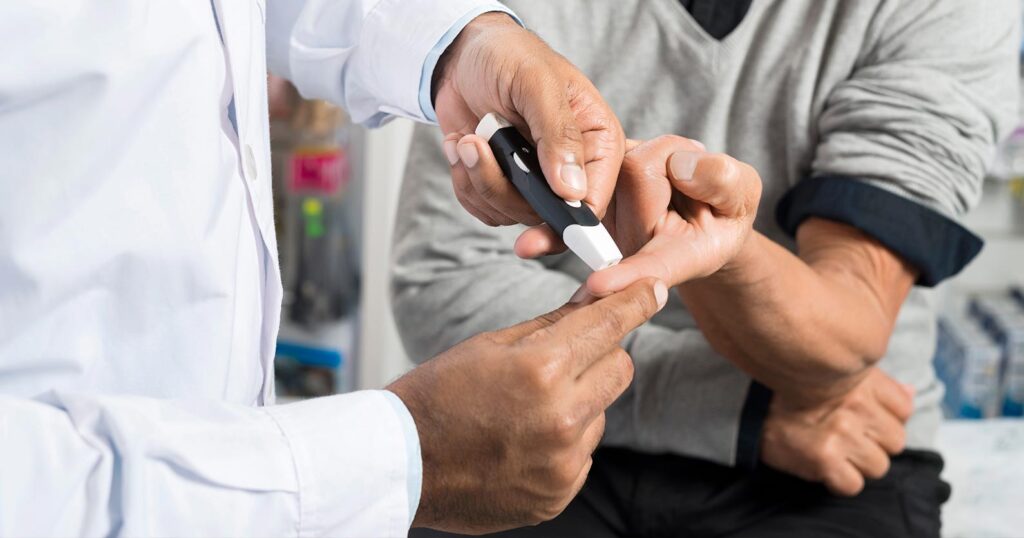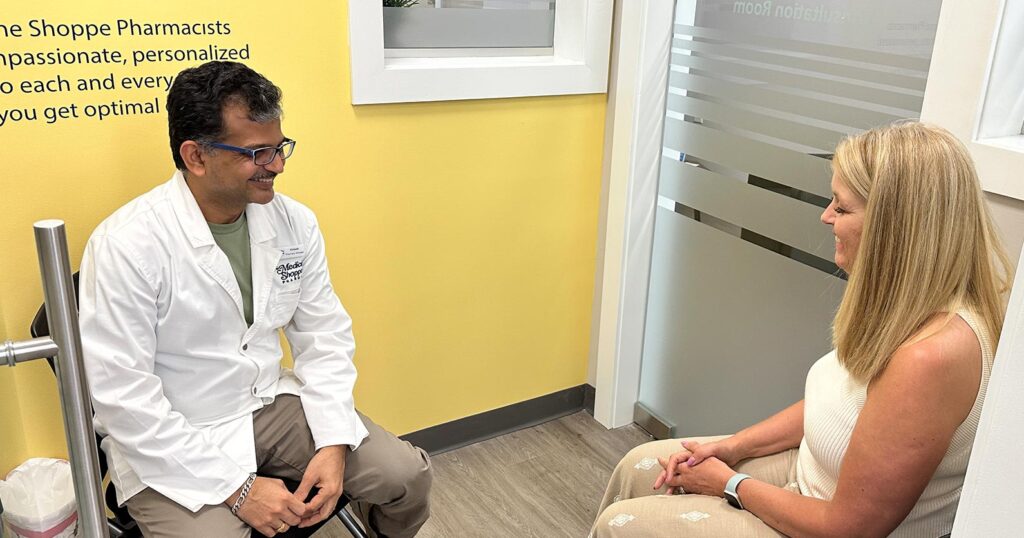Type 2 diabetes is a condition that’s all about how our bodies handle blood sugar (glucose). Sounds a bit technical, right? But don’t worry, I’ll break it down for you, and we’ll also dive into some really encouraging news about possibly turning the tables on this condition. Sounds good? Let’s go!
So, diabetes is when our bodies struggle with insulin, a super important hormone that keeps our blood sugar in check. When things go haywire with insulin, either because we’re not making enough of it or our bodies just aren’t using it right, our blood sugar levels can shoot up. This can lead to some not-so-great health problems over time, like heart issues, kidney troubles, and nerve damage. Often, lifestyle factors like being a bit on the heavier side, not moving enough, or having diabetes in the family can play a role. Managing diabetes usually means taking some meds, making healthier lifestyle choices, and keeping a close eye on your blood sugar levels.
But here’s the exciting part! Recent studies are showing that Type 2 Diabetes might not always be a forever thing. We’re talking about the possibility of reversing it or even achieving remission. This doesn’t mean it’s totally cured, but it’s about getting those blood sugar levels back to normal without needing diabetes meds. This is huge because we used to think Type 2 Diabetes was a lifelong buddy, with no chance of turning it around. These new insights are like a ray of hope, showing us that with the right steps, we might be able to stop or even reverse the progression of Type 2 Diabetes. Isn’t that something to be optimistic about?

Very Low-Carbohydrate, High-Fat, Ketogenic Diets
One of the key strategies in managing Type 2 Diabetes is weight management. A ketogenic diet, which is low in carbohydrates and high in fats, can be quite effective for weight loss. This diet shifts your body’s metabolism, making it burn fat for energy instead of carbohydrates. This process, known as ketosis, can significantly reduce body weight, which is a crucial factor in improving Type 2 Diabetes outcomes.
Hemoglobin A1C is a critical marker that reflects your average blood sugar levels over the past two to three months. A ketogenic diet can help lower HbA1c levels. This is because when you reduce carbohydrate intake, your blood sugar levels tend to stabilize, reducing the risk of spikes and dips that are common in diabetes.
As your body adapts to using fat for energy and your blood sugar levels become more stable, you may find a reduced need for glucose-lowering medications. This doesn’t mean you should stop your medication on your own, but rather, with continual monitoring, your healthcare provider might adjust your medication as your body responds to the diet.
Very Low-Calorie Total Diet Replacement
For those newly diagnosed with Type 2 Diabetes, here’s something that might pique your interest: a super low-calorie diet could actually lead to remission. Yes, you heard that right! This approach is all about seriously cutting back on calories, often with the help of meal replacements. And guess what? It’s not just great for shedding pounds, but it can also work wonders in bringing those blood sugar levels down. Imagine reaching a point where you might not even need diabetes meds anymore. Pretty cool, right?
But, and this is a big but, diving into this kind of diet should always be done under the watchful eye of a healthcare pro. Safety first, always!
Now, let’s talk tech. In our awesome digital age, handling Type 2 Diabetes has become a whole lot easier. There are these nifty online programs that help you manage everything on your own. They offer a bunch of helpful resources like meal planning ideas, tools to track your progress, and even community support. It’s like having a digital buddy to help you stick to that low-calorie diet and manage your diabetes like a champ. How convenient is that?

Accessibility of Pharmacists for Type 2 Diabetes Patients
Did you know that your friendly neighborhood pharmacist is like a hidden gem in healthcare, especially if you’re juggling life with Type 2 Diabetes? Seriously, they’re often way easier to get a hold of than other healthcare pros. Just think about it – you can stroll into your local pharmacy, sometimes without even needing an appointment, and bam, you’re in for a chat. Need some quick advice or help? They’ve got your back.
Whether it’s confusion about your meds, worries about your blood sugar levels, or just figuring out the whole lifestyle change thing, your pharmacist is ready to lend an ear and some wisdom. This kind of easy-peasy access to health advice is a real game-changer, especially when you’re dealing with a long-term buddy like diabetes. Getting the right advice at the right time? That can make a world of difference. So next time you’re passing by the pharmacy, remember, there’s a lot more in there than just pills and potions!
Expertise in Medication Management
Pharmacists are like wizards when it comes to medications. They’ve got this super-deep understanding of all things meds – how they work, what side effects they might have, and how they play nice (or not so nice) with other drugs. This kind of know-how is super important, especially if you’re managing Type 2 Diabetes. Why? Because keeping track of all those meds can sometimes feel like you’re juggling a bunch of balls at once!
Your local pharmacist is there to help you make sense of it all. They can guide you through the ins and outs of your medications, making sure you’re taking them just right and staying safe. Got any niggling side effects? They’ve got tips and tricks to manage those, too. And if things get a bit tricky with your meds, your pharmacist can be the bridge between you and your doctor, helping sort out any issues.

Importance of Pharmacists in Diabetes Management
Your pharmacist is a bit of a superhero when it comes to managing diabetes. They do way more than just hand over your meds. Think of them as your go-to guide for all things diabetes management. They’re there to dish out handy tips on eating right and making lifestyle tweaks that can really make a difference. Need a crash course in Diabetes 101? They’ve got you covered with some top-notch education.
But wait, there’s more! Your pharmacist can also help you keep an eye on your blood sugar levels, and they’re pretty nifty at conducting basic health checks like keeping tabs on your blood pressure and cholesterol. It’s like having a mini health check-up right there in the pharmacy!
By catching up regularly with your pharmacist, you’re not just picking up your meds – you’re staying one step ahead in your diabetes game. They’ll help you tackle any hiccups along the way, keeping you on track and in tip-top shape. So, next time you drop by the pharmacy, remember it’s a great chance to tap into some expert advice and support!
Pharmacist-Led Therapeutic Carbohydrate Restriction Study
The Pharmacist-Led Therapeutic Carbohydrate Restriction (Pharm-TCR) Trial is a pretty cool study, especially if you’re on the lookout for effective ways to tackle Type 2 Diabetes. Let me give you the lowdown on what this study was all about and why its findings are super relevant for folks managing this condition.
So, the Pharm-TCR trial was this innovative research project. The cool twist? It was led by pharmacists. They wanted to dig into how a low-carb diet affects managing Type 2 Diabetes.
Here’s the setup: They brought together people diagnosed with Type 2 Diabetes. These participants were carefully picked to make sure the study’s results would resonate with a broad range of people battling diabetes.
The participants were split into groups. One group went on a special low-carb diet, while the others stuck to their usual diet and diabetes care. The aim was to see the difference a low-carb diet, under the watchful eye of pharmacists, made in managing diabetes compared to the standard methods.
The results are pretty exciting! One big highlight was that lots of folks in the low-carb group managed to cut down on their glucose-lowering meds. That’s a huge deal because it shows that changing up your diet can really impact how much medication you need to control your diabetes.
Then there’s the HbA1c levels – that’s the marker that shows average blood sugar over time. Many in the low-carb group got their HbA1c down to levels that are below the diabetes threshold, hinting that they might be reversing the condition. How awesome is that?
The study also found improvements in overall cardiometabolic health. That means better cholesterol levels, blood pressure, and heart health. Super important, since heart issues are a big concern for people with Type 2 Diabetes.
And let’s not forget about quality of life. Participants on the low-carb diet reported feeling better overall – more energy, better mood, and just enjoying daily activities more. It’s a great reminder that getting a handle on your diabetes can really boost your overall happiness and health.

Reported Adverse Events in the Pharm-TCR Group
Like with any medical intervention, there were a few hiccups among participants who tried the therapeutic carbohydrate restriction diet. We’re talking about stuff like feeling tired, maybe a headache, or some changes in your digestion, particularly when you first start the diet.
Here’s the thing: whenever you make a big change in your eating habits, your body’s going to react in some way. It’s kind of like saying, “Hey, what’s going on here?” The trick is to keep an eye on these symptoms. If you notice anything that sticks around longer than it should or gets worse, it’s super important to have a chat with your healthcare provider. They’re like your guide in this journey, helping you navigate through these changes safely. Remember, it’s all about taking care of yourself while you’re trying to manage your diabetes better!
Importance of Medication Adjustments and Guidance
Alright, let’s dive into a really important part of the Pharm-TCR trial – the role of pharmacists in steering the ship, especially when it comes to tweaking medications. Picture this: you switch up your diet big time, cutting down on carbs to manage your diabetes. This is a game changer for your blood sugar levels, and as a result, it’s going to have a big impact on how your diabetes meds work.
This is exactly why having someone in the healthcare world to guide you through this journey is so crucial. In the Pharm-TCR trial, pharmacists were the superheroes. They were right there, adjusting medications to make sure they matched up with the dietary changes. It’s all about keeping things safe and ensuring that everyone’s diabetes was being managed the right way.
Think of it like having a navigator while you’re on a road trip. You might know where you want to go, but it’s super helpful to have someone with a map to make sure you’re on the right path. That’s what the pharmacists did in this study – they made sure everyone stayed on track and reached their health goals safely.

Overall Safety of the Intervention
The good news is that it was generally a safe ride for those who took part. But let’s not forget no adventure is entirely risk-free, right? The safety of diving into something like this depends on a bunch of personal stuff. Think about your own health situation, how closely you stick to the diet rules, and how well your meds are adjusted to fit with the new eating plan.
Here’s a golden rule: always team up with healthcare pros when you’re trying to tackle something like this. They’re like your personal coaches, customizing the program to fit you perfectly and keeping a close eye on your journey to ensure everything goes smoothly and safely. So, if you’re thinking about making some big changes to manage your diabetes, remember it’s all about doing it smartly and safely with the right team in your corner!
Implications of the Study’s Findings
The big win here? The low-carb diet in the study really nailed it in terms of improving blood sugar levels and cutting down on the need for meds. It’s a big shout-out to how changing what’s on your plate can be a superpower in managing diabetes. It reminds us that beating diabetes isn’t just about popping pills; it’s also about shaking up your lifestyle in ways that really boost your health.
Now, here’s a standout point from the Pharm-TCR trial: community pharmacists rocked it as leaders of this intervention. They made it way easier for folks to get the guidance and support they needed to manage their diabetes. Let’s face it, snagging regular appointments with a doctor can be tough. That’s where having a friendly pharmacist who can dish out advice and tweak your meds comes in super handy. Talk about a game-changer in diabetes care!
This study really put the spotlight on the crucial role healthcare pros, especially pharmacists, have in the diabetes management arena. Pharmacists are usually easier to chat with than doctors, and they’re like walking encyclopedias when it comes to meds and how they jive with lifestyle changes, like your diet. Their role in the Pharm-TCR trial shows they’re ace at guiding patients through dietary changes, all while keeping things safe and effective.
Looking ahead, the Pharm-TCR trial is opening doors to some exciting ways to handle Type 2 Diabetes. It’s hinting that with the right help and advice, you can really take the reins of your condition through lifestyle shifts. Plus, it’s nudging us towards a teamwork approach in healthcare, where docs and pharmacists join forces to give you the best care possible. This could mean more tailor-made and effective ways to manage diabetes, making life better for those dealing with this challenge. How awesome is that?

Encouragement for Type 2 Diabetes Patients to Explore Nutritional Interventions
Venturing into the realm of nutritional interventions could be a real game-changer in your diabetes management adventure. And guess what? It’s not all about just saying ‘no’ to some foods. It’s more about discovering a balanced, wholesome diet that works wonders in keeping your blood sugar levels steady and giving your overall health a big, happy boost. So, if you’re thinking about giving your eating habits a makeover, remember it’s all about finding that sweet spot that keeps you healthy and smiling!
Evolving Landscape of Type 2 Diabetes Care
With all the ongoing research and fresh insights popping up, we’re getting better and better at understanding how to manage, and possibly even reverse, this condition. It’s a really dynamic time in the world of diabetes care, and it’s showing us that diabetes doesn’t have to be a fixed part of your life. There are ways to really ramp up your health and boost your day-to-day life quality. Exciting, right?
Now, if you’re in the Type 2 Diabetes club, there’s more good news. There are some pretty promising strategies out there for you. Nutritional interventions are turning out to be a big deal in managing diabetes, offering chances for some serious health wins.
The best part? With the right kind of support and advice, you can dive into these options in a way that’s safe and really works for you. It’s all about taking a hands-on role in your diabetes journey and giving your overall well-being a lift. And remember, you’re definitely not going it alone. There are loads of resources and healthcare pros, including your trusty pharmacist, who are all in to help you every step of the way. Keep your chin up – managing diabetes is becoming a path filled with more and more hope and possibilities!


